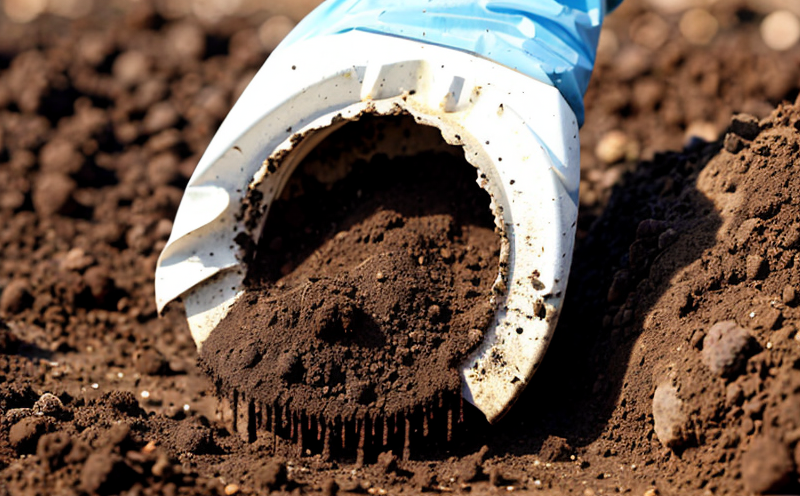ISO 21268-4 Influence of pH on Leaching Test in Soil
The ISO 21268 series provides a comprehensive framework for assessing soil quality and contamination, focusing particularly on the impact of various environmental factors. One specific standard within this series is ISO 21268-4, which details the procedure for conducting an influence-of-pH-on-leaching test in soil. This method is crucial for understanding how changes in pH can affect the leaching behavior of contaminants and pollutants present in soils.
The primary purpose of this test is to evaluate the potential mobility of certain contaminants under varying pH conditions, which is critical for environmental risk assessment and remediation efforts. By simulating realistic scenarios where soil pH might fluctuate (due to natural processes or human activities), ISO 21268-4 helps determine if and how these changes can influence the release of harmful substances into groundwater or surface water.
The testing procedure involves preparing a sample of contaminated soil, adjusting its pH according to specified values outlined in the standard, then subjecting it to controlled leaching conditions. Key parameters include temperature, duration, agitation rate, and the type of leaching solution used. Once the leaching process is complete, the extract is analyzed for specific contaminants using analytical techniques such as gas chromatography-mass spectrometry (GC-MS) or inductively coupled plasma mass spectrometry (ICP-MS).
The results from this test are essential inputs for environmental risk assessments and remediation planning. They help decision-makers understand the potential risks associated with particular soils, enabling them to take proactive measures to mitigate these risks effectively.
Real-world applications: This test is particularly relevant in industries dealing with industrial waste management, hazardous waste disposal sites, landfills, and contaminated site remediation projects. In such contexts, understanding how changes in pH influence the mobility of contaminants can guide more effective treatment strategies and ensure compliance with environmental regulations.
The ISO 21268-4 procedure ensures consistency across different laboratories performing this type of testing, thereby enhancing reliability and comparability of results. Compliance with these standards is vital for ensuring accurate data that supports sound environmental policies and practices.
Industry Applications
This test plays a crucial role in the waste management sector, especially when dealing with hazardous materials that could leach into surrounding environments. Understanding how these materials behave under different pH conditions allows for better containment strategies and safer disposal methods.
In environmental consulting firms specializing in contaminated site assessments, this test helps identify potential sources of groundwater contamination. It aids in prioritizing remediation efforts based on the mobility of contaminants within specific soil types.
For construction companies working near existing or former industrial sites, knowing the leaching behavior of soils under varying pH conditions is important for ensuring compliance with local environmental laws and minimizing ecological impacts during development projects.
Eurolab Advantages
At Eurolab, we offer specialized ISO 21268-4 Influence of pH on Leaching Test in Soil services that provide unparalleled accuracy and reliability. Our team of experts ensures that every step of the testing process adheres strictly to the ISO standard, ensuring consistent results across all samples analyzed.
We use state-of-the-art equipment calibrated according to international standards to perform precise measurements throughout the leaching procedure. This guarantees accurate extraction rates and reliable contaminant concentration data for comprehensive analysis.
Our experienced technicians are well-versed in handling complex soil matrices, ensuring that even challenging samples yield valid results. Additionally, our robust quality control measures ensure that all test results meet or exceed regulatory requirements.
Customer Impact and Satisfaction
By providing reliable ISO 21268-4 Influence of pH on Leaching Test in Soil data, Eurolab helps clients make informed decisions regarding their environmental management practices. This leads to more effective risk mitigation strategies and improved compliance with regulatory frameworks.
Our comprehensive testing services enable construction companies and waste management firms to design safer processes that reduce the likelihood of accidental contamination events. This not only protects natural resources but also enhances public trust in these industries.
Clients have consistently praised our commitment to delivering accurate, timely results supported by detailed reports explaining each stage of the testing process. These insights empower them to address emerging challenges proactively and confidently.





